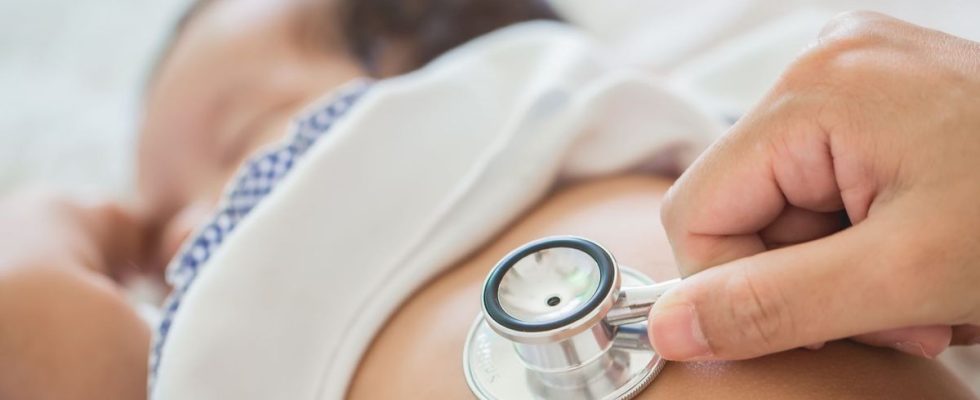Published on
Updated
Reading 2 min.
in collaboration with
Dr Gérald Kierzek (Medical Director of Doctissimo)
A three-week-old baby died of whooping cough in Nice yesterday. Faced with this tragedy, it is essential to remember the right actions to follow, to prevent this infection in infants. Update with Dr. Gérald Kierzek, emergency physician and medical director of Doctissimo.
An infant aged just three weeks died of whooping cough in Nice, report our colleagues from Nice-matin in their April 29 edition. The respiratory infection is caused by the bacteria Bordetella pertussis. It is easily transmitted through the air, particularly through droplets of saliva emitted when coughing.
What are the good reflexes to adopt in case of whooping cough?
Doctissimo interviewed Dr. Gérald Kierzek, emergency doctor, to find out what to do in the event of whooping cough. Here are our expert’s tips.
Immediate medical consultation
“If you or someone you know has symptoms of whooping cough (coughing, difficulty breathing), seek medical attention immediately.” recommends Gérald Kierzek. A medical consultation is essential to obtain a precise diagnosis.
Make the diagnosis safely
You should see a doctor quickly if you have:
- a cough in fits with spasms;
- a cough that persists for more than seven days and gets worse;
- an infant aged three to six months who coughs;
- been in contact with a person suffering from whooping cough and vaccination not up to date.
An emergency consultation will be required in the following cases:
- an infant under three months old who coughs;
- blue tips of the fingers and around the mouth during coughing fits;
- interruption of breathing or difficulty breathing during fits;
- lethargy or seizures;
- refusal to drink in the child, with vomiting and signs of dehydration;
- a high fever or apparent weakness.
As a reminder, whooping cough is treated with antibiotics from the macrolide family. “They reduce contagiousness and help prevent coughing fits if taken at the start of the infection” adds the doctor. “Moreover, members of the patient’s close entourage must also receive preventive antibiotic therapy“.
Whooping cough prevention instructions
The medical director of Doctissimo emphasizes the prevention of the disease, in a few points:
- “Getting vaccinated against whooping cough is the best preventative method” ;
- “It is essential to avoid contact with infected people” ;
- And “hand hygiene, by washing them regularly, is essential, whatever happens“.
Finally, he emphasizes, “remember that whooping cough can be serious in infants and vulnerable people and that vaccination is essential to prevent this disease, particularly in infants (mandatory), pregnant women (at each pregnancy) and the entourage including future parents and nannies”.
There High Authority of Health (HAS) recommends vaccinating pregnant women against whooping cough in order to protect the newborn in whom this disease is particularly dangerous. This vaccination must be carried out from the second trimester of each pregnancy, preferably between weeks of amenorrhea 20 and 36. If vaccination could not be carried out during pregnancy, the HAS recommends maintaining the cocooning strategy, which consists of vaccinating the entourage and the mother as quickly as possible after the birth of the child.
